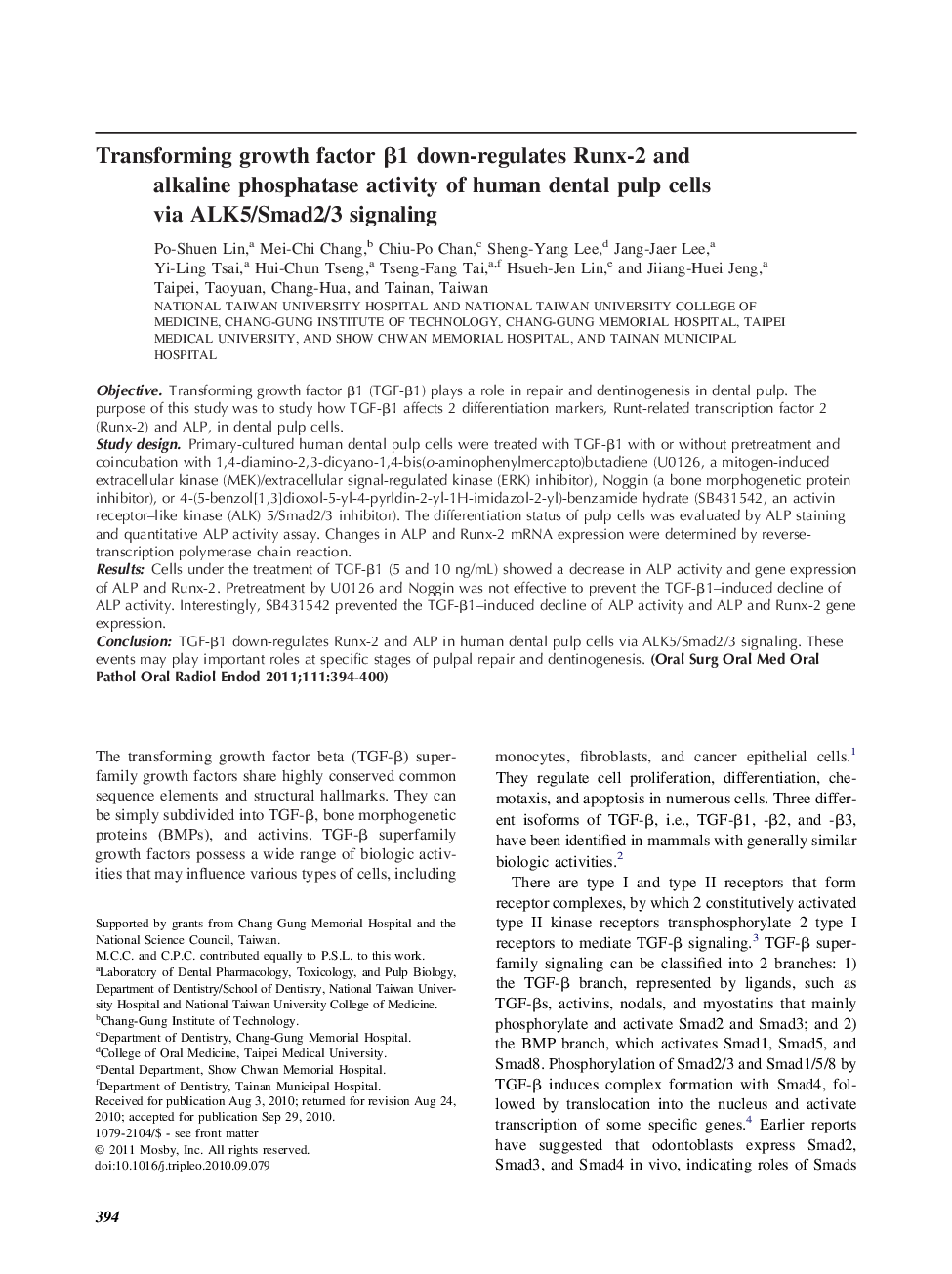| Article ID | Journal | Published Year | Pages | File Type |
|---|---|---|---|---|
| 6059957 | Oral Surgery, Oral Medicine, Oral Pathology, Oral Radiology, and Endodontology | 2011 | 7 Pages |
ObjectiveTransforming growth factor β1 (TGF-β1) plays a role in repair and dentinogenesis in dental pulp. The purpose of this study was to study how TGF-β1 affects 2 differentiation markers, Runt-related transcription factor 2 (Runx-2) and ALP, in dental pulp cells.Study designPrimary-cultured human dental pulp cells were treated with TGF-β1 with or without pretreatment and coincubation with 1,4-diamino-2,3-dicyano-1,4-bis(o-aminophenylmercapto)butadiene (U0126, a mitogen-induced extracellular kinase (MEK)/extracellular signal-regulated kinase (ERK) inhibitor), Noggin (a bone morphogenetic protein inhibitor), or 4-(5-benzol[1,3]dioxol-5-yl-4-pyrldin-2-yl-1H-imidazol-2-yl)-benzamide hydrate (SB431542, an activin receptor-like kinase (ALK) 5/Smad2/3 inhibitor). The differentiation status of pulp cells was evaluated by ALP staining and quantitative ALP activity assay. Changes in ALP and Runx-2 mRNA expression were determined by reverse-transcription polymerase chain reaction.ResultsCells under the treatment of TGF-β1 (5 and 10 ng/mL) showed a decrease in ALP activity and gene expression of ALP and Runx-2. Pretreatment by U0126 and Noggin was not effective to prevent the TGF-β1-induced decline of ALP activity. Interestingly, SB431542 prevented the TGF-β1-induced decline of ALP activity and ALP and Runx-2 gene expression.ConclusionTGF-β1 down-regulates Runx-2 and ALP in human dental pulp cells via ALK5/Smad2/3 signaling. These events may play important roles at specific stages of pulpal repair and dentinogenesis.
